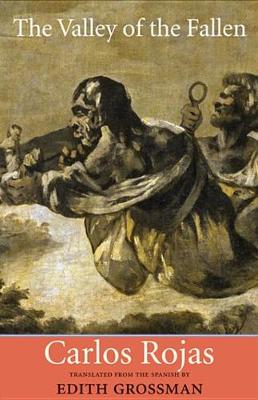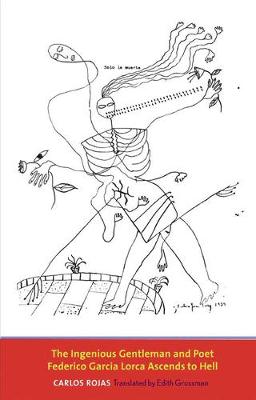World Republic of Letters (Yale)
2 total works
Acclaimed translator Edith Grossman brings to English-language readers Rojas's imaginative vision of Francisco de Goya and the reverberations of his art in Fascist Spain
This historical novel by one of Spain's most celebrated authors weaves a tale of disparate time periods: the early years of the nineteenth century, when Francisco de Goya was at the height of his artistic career, and the final years of Generalissimo Franco's Fascist rule in the 1970s. Rojas re-creates the nineteenth-century corridors of power and portrays the relationship between Goya and King Fernando VII, a despot bent on establishing a cruel regime after Spain's War of Independence. Goya obliges the king's request for a portrait, but his depiction not only fails to flatter but reflects a terrible darkness and grotesqueness. More than a century later, transcending conventional time, Goya observes Franco's body lying in state and experiences again a dark and monstrous despair.
Rojas's work is a dazzling tour de force, a unique combination of narrative invention and art historical expertise that only he could have brought to the page.
This historical novel by one of Spain's most celebrated authors weaves a tale of disparate time periods: the early years of the nineteenth century, when Francisco de Goya was at the height of his artistic career, and the final years of Generalissimo Franco's Fascist rule in the 1970s. Rojas re-creates the nineteenth-century corridors of power and portrays the relationship between Goya and King Fernando VII, a despot bent on establishing a cruel regime after Spain's War of Independence. Goya obliges the king's request for a portrait, but his depiction not only fails to flatter but reflects a terrible darkness and grotesqueness. More than a century later, transcending conventional time, Goya observes Franco's body lying in state and experiences again a dark and monstrous despair.
Rojas's work is a dazzling tour de force, a unique combination of narrative invention and art historical expertise that only he could have brought to the page.
The Ingenious Gentleman and Poet Federico Garcia Lorca Ascends to Hell
by Carlos Rojas
Published 1 January 2013
In Carlos Rojas's imaginative novel, the Spanish poet Federico Garcia Lorca, murdered by Francoist rebels in August 1936, finds himself in an inferno that somehow resembles Breughel's Tower of Babel. He sits alone in a small theater in this private hell, viewing scenes from his own life performed over and over and over. Unexpectedly, two doppelgangers appear, one a middle-aged Lorca, the other an irascible octogenarian self, and the poet faces a nightmarish confusion of alternative identities and destinies. Carlos Rojas uses a fantastic premise-Garcia Lorca in hell-to reexamine the poet's life and speculate on alternatives to his tragic end. Rojas creates with a surrealist's eye and a moral philosopher's mind. He conjures a profoundly original world, and in so doing earns a place among such international peers as Gabriel Garcia Marquez, Philip Roth, J. M. Coetzee, and Jose Saramago.

